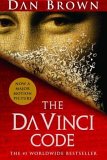Summary | Excerpt | Reading Guide | Reviews | Readalikes | Genres & Themes | Author Bio

Chapter 1
Robert Langdon awoke slowly.
A telephone was ringing in the darkness--a tinny, unfamiliar ring. He fumbled for the bedside lamp and turned it on. Squinting at his surroundings he saw a plush Renaissance bedroom with Louis XVI furniture, hand-frescoed walls, and a colossal mahogany four-poster bed.
Where the hell am I?
The jacquard bathrobe hanging on his bedpost bore the monogram:
HOTEL RITZ PARIS.
Slowly, the fog began to lift.
Langdon picked up the receiver. "Hello?"
"Monsieur Langdon?" a man's voice said. "I hope I have not awoken you?"
Dazed, Langdon looked at the bedside clock. It was 12:32 A.M. He had been asleep only an hour, but he felt like the dead.
"This is the concierge, monsieur. I apologize for this intrusion, but you have a visitor. He insists it is urgent."
Langdon still felt fuzzy. A visitor? His eyes focused now on a crumpled flyer on his bedside table.
THE AMERICAN UNIVERSITY OF PARIS
proudly presents
An evening with Robert Langdon
Professor of Religious Symbology, Harvard University
Langdon groaned. Tonight's lecture--a slide show about pagan symbolism hidden in the stones of Chartres Cathedral--had probably ruffled some conservative feathers in the audience. Most likely, some religious scholar had trailed him home to pick a fight.
"I'm sorry," Langdon said, "but I'm very tired and--"
"Mais monsieur," the concierge pressed, lowering his voice to an urgent whisper. "Your guest is an important man."
Langdon had little doubt. His books on religious paintings and cult symbology had made him a reluctant celebrity in the art world, and last year Langdon's visibility had increased a hundred-fold after his involvement in a widely publicized incident at the Vatican. Since then, the stream of self-important historians and art buffs arriving at his door had seemed never-ending.
"If you would be so kind," Langdon said, doing his best to remain polite, "could you take the man's name and number, and tell him I'll try to call him before I leave Paris on Tuesday? Thank you." He hung up before the concierge could protest.
Sitting up now, Langdon frowned at his bedside Guest Relations Handbook, whose cover boasted: SLEEP LIKE A BABY IN THE CITY OF LIGHTS. SLUMBER AT THE PARIS RITZ.
He turned and gazed tiredly into the full-length mirror across the room. The man staring back at him was a stranger--tousled and weary.
You need a vacation, Robert.
The past year had taken a heavy toll on him, but he didn't appreciate seeing proof in the mirror. His usually sharp blue eyes looked hazy and drawn tonight. A dark stubble was shrouding his strong jaw and dimpled chin. Around his temples, the gray highlights were advancing, making their way deeper into his thicket of coarse black hair. Although his female colleagues insisted the gray only accentuated his bookish appeal, Langdon knew better.
If Boston Magazine could see me now.
Last month, much to Langdon's embarrassment, Boston Magazine had listed him as one of that city's top ten most intriguing people--a dubious honor that made him the brunt of endless ribbing by his Harvard colleagues. Tonight, three thousand miles from home, the accolade had resurfaced to haunt him at the lecture he had given.
"Ladies and gentlemen . . ." the hostess had announced to a full-house at The American University of Paris's Pavillon Dauphine, "Our guest tonight needs no introduction. He is the author of numerous books: The Symbology of Secret Sects, The Art of the Illuminati, The Lost Language of Ideograms, and when I say he wrote the book on Religious Iconology, I mean that quite literally. Many of you use his textbooks in class."
Excerpted from The Da Vinci Code by Dan Brown Copyright© 2003 by Dan Brown. Excerpted by permission of Doubleday, a division of Random House, Inc. All rights reserved. No part of this excerpt may be reproduced or reprinted without permission in writing from the publisher.




Children are not the people of tomorrow, but people today.
Click Here to find out who said this, as well as discovering other famous literary quotes!
Your guide toexceptional books
BookBrowse seeks out and recommends the best in contemporary fiction and nonfiction—books that not only engage and entertain but also deepen our understanding of ourselves and the world around us.